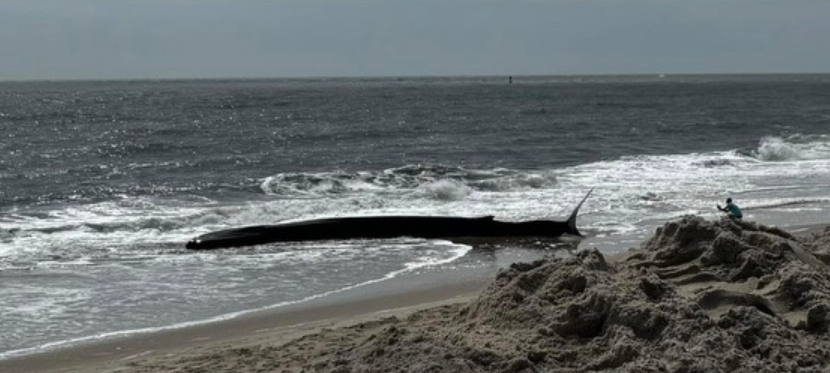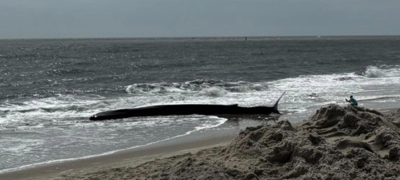INDIAN RIVER INLET, Del. - A young Fin whale that was found beached on the north side of the Indian River Inlet Bridge on Sunday has died, according to the MERR Institute.
The MERR Institute said the whale was extremely thin and emaciated, indicating a long-term underlying condition. "This is an offshore species, so it would not come into shore unless it was in this kind of situation where it's getting too weak to surface to breathe, and their instinct is to get out of the water to avoid drowning," said Suzanne Thurman, executive director of the MERR Institute.
On Sunday, MERR told CoastTV that unfortunately, there was not much they could do to help the sick animal.
"We are seeing a whale that is in the process of dying, and as much as we wish there's something that we could do, there's nothing we can do, partly because of its massive weight," Thurman added. "With a smaller animal, we could retrieve it; we could bring it in and sedate it. Our hope was to sedate this whale, but it was never in a position where our responders could safely get close to the whale. It takes a long time to administer the sedative, and with the waves washing around, that becomes such treacherous for us. We could easily be killed as well."
Dozens of people were drawn to the shore, including Carter DiRado, who stopped by after noticing the crowd from the bridge. "It's big. It's bigger than [what] probably [the] camera could show, but it weighs a lot, so it's kind of crazy to see, and all the veterinarians and everything that they're trying to do, and there's not much we can do so it's sad, really sad," DiRado said.

Dozens of people were drawn to the shore to see the fin whale.
Thurman on Sunday detailed the next steps for handling the situation. "We are waiting for her. We hope to die naturally, of her own accord, and at that point, with the help of DNREC and their shoreline team, they will use their heavy equipment, and we can get her out of the water," she explained. "At that point, if she comes up near shore, we'll do a necropsy and try to find out more about what happened to her."
The organization is actively monitoring the situation and has committed to providing updates to the public.









